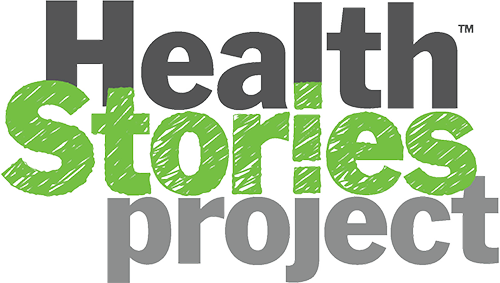We all get stressed out from time to time – long hours at work, challenges in our personal lives, health problems, even traffic jams can send blood pressures rising. Stress is unavoidable. Luckily, there are countless tools and resources available to help reduce the overall negative impacts of stress. Because stress management has become such a hot topic in the health and wellness community, you will be able to find a lot of information on how to deal with it. No one wants to have to suffer with stress every day of their life as this will eventually start to have an effect on their mental and physical wellbeing. This is often the case with many people, as unmanaged stress can eat away at a person and will often make them feel anxious, as they struggle to deal with everything they have to do, and depressed, as a result of feeling like a failure. Above all, there are plenty of stress management approaches out there that could possibly help you.
In honor of Stress Awareness Month, we at Health Stories Project thought we’d put together a collection of some helpful resources. We hope you find them as useful as we have.



What to Do When You’re Feeling Stressed
- 101 Strategies for Coping with Stress. This great PDF resource from the University of Minnesota can be downloaded, printed, and pinned to the wall by your desk. It’s perfect when you need a quick idea for dealing with stress when it pops up unexpectedly.
- Stress Management Tools. Mindtools has compiled a comprehensive list of stress management resources and tools based on your individual needs and specific situations like burnout, anger, and/or just a need for relaxation and sleep.
- Four Ways to Deal with Stress. Heart.org has collected many resources on stress management. In particular, their article Four Ways to Deal with Stress teaches simple techniques for managing stress – even when you’re in the middle of it.



- Tips to Manage Anxiety and Stress. When you’re feeling anxious, stress can permeate your entire life. The Anxiety and Depression Association of America suggests these tips for coping.
- Breathe. How are you? When was the last time you checked in with yourself? The Breathe app is a simple, beautifully designed tool that can help you do just that. With this app, you can reduce and cope with stress in your daily life through their STOP, BREATHE & THINK process.
- Exercise and Stress: Get Moving to Manage Stress. Almost all types of exercise help when it comes to stress management. From improving your mood to pumping your body full of feel-good endorphins, it’s worth the time and effort!
Reduce Stress at Work
- Start a Bullet Journal. The age of tech has given us a baffling and sometimes debilitating amount of information at our fingertips. Tech, apps, and gadgets are awesome, but all those screens and notifications can lead to distraction and stress instead of productivity. Bullet journaling is a quick, analog way to track tasks, events, notes, thoughts and ideas in one journal. There are no anxiety causing apps or software required. Check out this video on how to get started by Ryder Carroll.
- 50 Tips for Surviving Your Worst Work Days. Are you working really long, really stressful days? These simple ideas from U.S. News might help make them a little more bearable. As the article says, “Print out this list now, and on those days when it all feels like just too much, check out these tips.”
- 6 Secrets for Surviving a Business Trip. When the stress and inconvenience of travel mixes with the potential strain of spending very long days with co-workers, it is a good idea to have some healthy coping strategies in your back pocket. So, before you pack, read these tips from The Muse.
Healthy Habits
- Keep a Stress Diary. The idea behind keeping a stress diary is that if you record information about the stresses you’re experiencing on a regular basis, you can analyze and manage them better. To get started, download Mind Tools’ Stress Diary Template and make regular entries. Next, analyze and take action on the most frequent and unpleasant stresses.
- Habit Tracker. If you’re interested in forming new, healthy habits and you love monitoring and keeping track of your goals, the Coach.me Habit Tracker is the perfect tool for you! Use it to set up a few habits you’d like to start, track your work, set reminders and view weekly and monthly trends of your progress. They even have step-by-step plans, Q&A and coaching for those who want even more guidance and support.
- Habit Change for Newbies. Nerd Fitness is a fun blog designed to help you “Level up your life, every single day.” Their post on habit change is particularly inspiring (and helpful!) when it comes to getting started with new healthy habits.
[tweet_box design=”default”]We all get stressed out from time to time. Check out this collection of some helpful resources to combat anxiety from @Healthstories[/tweet_box]
Extended Learning and Stress Awareness Resources
- The One You Feed Podcast. If you enjoy listening and learning you’ll love The One You Feed. This podcast is about how people keep themselves living conscious, constant, and creative lives. Stress is often a topic of discussion and you’ll discover many tools for changing and bettering your daily life.
- Zenhabits is a blog written by Leo Babauta about finding simplicity and mindfulness in the chaos that is life.
- Join the Health Stories Project Community. Health Stories Project is a free, online community dedicated to giving people opportunities to share their personal health experiences and to learn from the experiences of others. When you join you can find health stories that educate and motivate. Share your story to help others, and become part of a community that cares!

